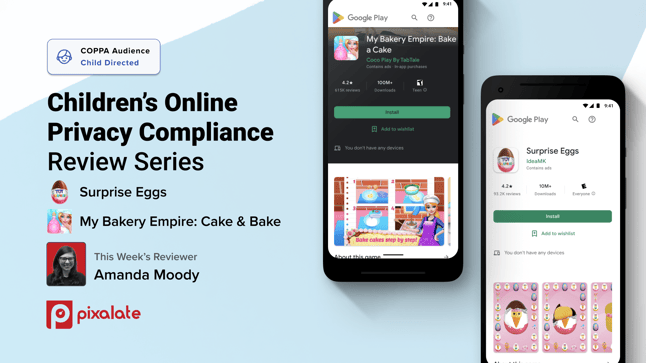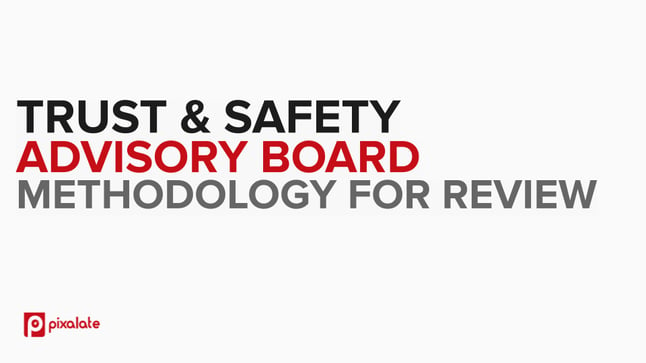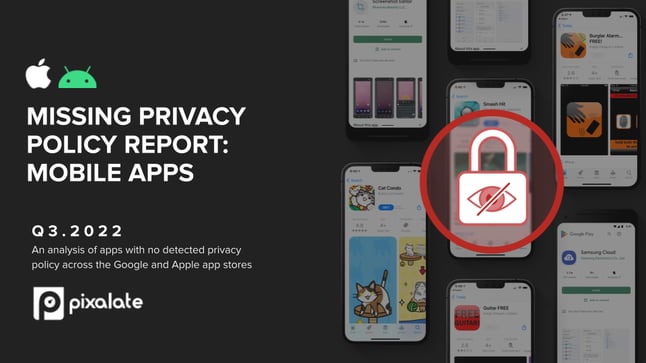
This week's review of ad fraud and privacy in the digital advertising space:
.png?width=646&height=646&name=Publisher%20Trust%20Index_V6%20(2).png)
Pixalate’s monthly Publisher Trust Index (PTI) report provides a perspective regarding the quality of CTV apps that support programmatic advertising with rankings broken down by region, country, category, and app store. The assessment is based on various factors including invalid traffic (IVT), popularity, ad density, and engagement scores.

Pixalate introduced its Mobile App Manual Reviews According to COPPA, a series containing the detailed factors the Trust & Safety Advisory Board educators used to assess an app’s child-directedness. The educators manually review thousands of apps available in the Google Play & Apple App Stores using the COPPA Rule factors shown below & make those results available to the public at ratings.pixalate.com.
This post takes a look at two popular (1 million+ downloads each) mobile apps from the Google Play Store. Our reviewer discusses how the subjective factors set forth in the COPPA Rule apply to each app and factor into the reviewer's determination as to whether the app is child-directed or general audience (i.e., it is not targeting children).

Earlier this year, Pixalate formed a Trust and Safety Advisory Board to quality check our automated COPPA Compliance methodology using a manual review process to assess whether apps are child-directed based on the factors outlined in the COPPA Rule. This blog post serves as an FAQ about the Trust and Safety Advisory Board, its manual review process, and the blog series.

Pixalate released the Q3 2022 Missing Privacy Policy Report: Mobile Apps for apps available for download across the Apple App Store and Google Play Stores, examining 5.2MM+ downloadable appsWe found that 12% - over 608,000 - have no detected privacy policy, in violation of both the Apple and Google Play stores’ app privacy guidelines as well as laws that mandate publishing a privacy policy, including CalOPPA, GDPR, CCPA, and COPPA.

The U.S. Federal Trade Commission (FTC) has publicly noted their concern with the recent acquisition and takeover of Twitter by Tesla CEO Elon Musk, according to MediaPost. The agency announced it will be “tracking recent developments at Twitter with deep concern.” This warning came after the resignations of leaders of the company's privacy and security teams. Twitter already paid a hefty $150 million dollar fine to the FTC earlier this year for misleading users about what their data was being used for.
*By entering your email address and clicking Subscribe, you are agreeing to our Terms of Use and Privacy Policy.
These Stories on Weekly Recaps
*By entering your email address and clicking Subscribe, you are agreeing to our Terms of Use and Privacy Policy.

Disclaimer: The content of this page reflects Pixalate’s opinions with respect to the factors that Pixalate believes can be useful to the digital media industry. Any proprietary data shared is grounded in Pixalate’s proprietary technology and analytics, which Pixalate is continuously evaluating and updating. Any references to outside sources should not be construed as endorsements. Pixalate’s opinions are just that - opinion, not facts or guarantees.
Per the MRC, “'Fraud' is not intended to represent fraud as defined in various laws, statutes and ordinances or as conventionally used in U.S. Court or other legal proceedings, but rather a custom definition strictly for advertising measurement purposes. Also per the MRC, “‘Invalid Traffic’ is defined generally as traffic that does not meet certain ad serving quality or completeness criteria, or otherwise does not represent legitimate ad traffic that should be included in measurement counts. Among the reasons why ad traffic may be deemed invalid is it is a result of non-human traffic (spiders, bots, etc.), or activity designed to produce fraudulent traffic.”

